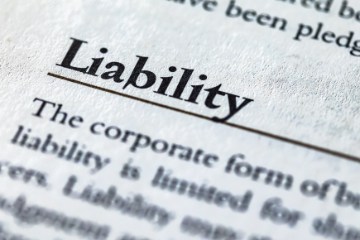
Under Dutch law, the liability of a director of a Dutch company is a serious subject. Directors must maintain high standards, as Dutch corporate law imposes a significant duty of care. Acting against the firm’s Articles of Association or mismanaging finances may result in personal liability for company debts. Importantly, the Dutch Civil Code (Article 2:9) amplifies this obligation, making directors answerable for damages due to their mismanagement. Penalties can be severe, hence any director understanding the intricacies of Dutch law would benefit from a thorough comprehension of the potential legal repercussions.
Understanding Directors’ Liability under Dutch law
Grasping the complexities of directors’ liability under Dutch law necessitates a deep understanding of the legal obligations and potential personal consequences for directors who fail to fulfill their duties properly. Central to this understanding is the principle that the director can be held personally accountable for company debts if they act contrary to the Articles of Association or mismanage finances. This piercing of the corporate veil is a significant aspect of Dutch law, aimed at ensuring responsible actions that prioritize the interests of the company.
Under Article 2:9 of the Dutch Civil Code, directors must uphold a duty of care towards the company. Failure to fulfill these duties can result in personal liability for damages inflicted on the company. The liability of directors is not a light matter; it emphasizes the importance of proper administration and adherence to legal requirements.
In the event of bankruptcy, Dutch law allows receivers and trustees to investigate the directors’ actions, potentially holding them responsible for financial losses due to mismanagement. Consequently, both individual directors and the company itself can be held liable for their actions under Dutch law.
The Scope of Dutch Corporate Law
In examining the breadth of Dutch corporate law, it becomes evident that the legislation imposes a significant duty of care on directors, mandating them to prioritize the company’s interests in all their actions. The liability of company directors is a vital aspect of this law, as they can face personal accountability for company debts if they fail to manage finances or act in contradiction to the company’s Articles of Association.
Dutch corporate law, as embodied in Article 2:9 of the Dutch Civil Code, requires directors to fulfill their duties properly. Any mismanagement or non-compliance with this code can lead to personal liability for damages inflicted on the company. This highlights the essential need for directors to follow legal requirements and maintain proper administration practices.
In the event of bankruptcy, Dutch law allows receivers and trustees to scrutinize the actions of managing directors, potentially holding them responsible for financial losses due to mismanagement or negligence.
Hence, it is essential for directors to seek legal advice to understand and navigate the complexities of Dutch corporate law, ensuring that they prioritize the company’s interests and avoid personal liability.
When Directors in the Netherlands Can Be Held Liable
Under Dutch law, directors find themselves facing liability when they fail to uphold their duty of care towards the company, particularly in instances of serious misconduct or mismanagement of company affairs. This liability in the Netherlands is not only enforced at a company level but also extends to external liability when directors act negligently towards third parties.
- Mismanagement: If directors engage in serious misconduct or mismanagement, they can be held liable. This includes failure to comply with the company’s Articles of Association, improper administration, or financial mismanagement leading to the company’s bankruptcy.
- Collective Liability: Directors may face collective liability if the board fails to meet its obligations. This means that all directors can be held accountable for the actions of one, emphasizing the importance of collective responsibility in decision-making.
- External Liability: In addition to internal liability, directors may also face external liability. This occurs when directors act negligently towards third parties, causing damages for which they can be held accountable.
In essence, directors have a duty of care towards the company, its shareholders, and third parties, and failure to uphold this duty can result in substantial liabilities under Dutch law.
Protections and Exceptions for Directors in the Netherlands
While Dutch law imposes stringent liability on directors, it also offers certain protections and exceptions to shield them from personal liability under specific circumstances. These provisions are embedded in the legal framework to balance the risks associated with corporate governance, providing a safety net for directors who fulfill their roles diligently.
Directors can evade personal liability by showing they acted within their legal powers and in the best interests of the company. This requires concrete evidence of their efforts to maintain proper administration and adhere to the company’s Articles of Association.
Exceptions to liability may apply if directors can establish that they were not at fault or had no knowledge of misconduct. Such exceptions are not automatic but depend on factual circumstances and legal interpretation.
Understanding these protections and exceptions under Dutch law is essential for directors to navigate potential liability issues. It allows them to operate in a challenging business environment, knowing that they are not unnecessarily exposed to personal financial risk, provided they act responsibly and within the bounds of their authority. These measures collectively encourage effective corporate governance while limiting undue personal risk for directors.
Case Studies of Dutch Directors’ Liability
To illustrate the complexity and intricacies of directors’ liability under Dutch law, it is informative to explore specific case studies that highlight the potential risks and consequences of non-compliance or mismanagement.
- A pertinent example is that of a Dutch company whose directors were held personally liable for company debts after proven mismanagement. Failure to maintain proper record-keeping resulted in a lack of transparency, leading to financial losses and ultimately, the company’s bankruptcy.
- In another case, trustees during bankruptcy proceedings identified lapses in administrative duties by the directors. Consequently, the directors were held accountable for the financial losses incurred by the company, underlining the importance of the directors’ role in good corporate governance.
- Lastly, a case involving late submission of annual accounts resulted in a claim of mismanagement against the directors. The late submission was viewed as negligence, emphasizing the importance of timely compliance with administrative duties.
These case studies underscore the serious implications of directors’ liability, the necessity for dutiful compliance with Dutch laws and regulations, and the potential repercussions in the event of corporate mismanagement or non-compliance.
Frequently Asked Questions
What Are the Legal Liabilities of Directors in the Netherlands?
Legal liabilities of directors include personal accountability for company debts due to mismanagement or non-compliance with regulations. In bankruptcy, directors’ actions are scrutinized and they may be held responsible for financial losses.
When Can a Director Be Held Personally Liable under Dutch law?
Under Dutch law, a director can be held personally liable in cases of financial mismanagement, failure to comply with legal regulations, and actions contrary to the company’s Articles of Association, particularly if these actions lead to insolvency.
What Is Legal Liability of Board of Directors under Dutch law?
The legal liability of a board of directors involves personal accountability for business decisions. Directors can be held liable for mismanagement, breach of fiduciary duties, or failure to comply with legal requirements and regulations.
What Is Director Discharge in the Netherlands?
Director discharge in the Netherlands refers to relieving directors from liability, provided they demonstrate good faith and duty fulfillment. This process, requiring substantial evidence of proper conduct, is a pivotal aspect of Dutch corporate law.
Conclusion
To sum up, Dutch law holds directors to a high standard of accountability, with potential personal liability for mismanagement and non-compliance. The consequences of such liability can be severe, particularly in instances of bankruptcy. As a result, a thorough understanding of the stipulations and complexities of directors’ liability under Dutch law is fundamental for directors to execute their responsibilities effectively and avoid potential legal and financial repercussions.







